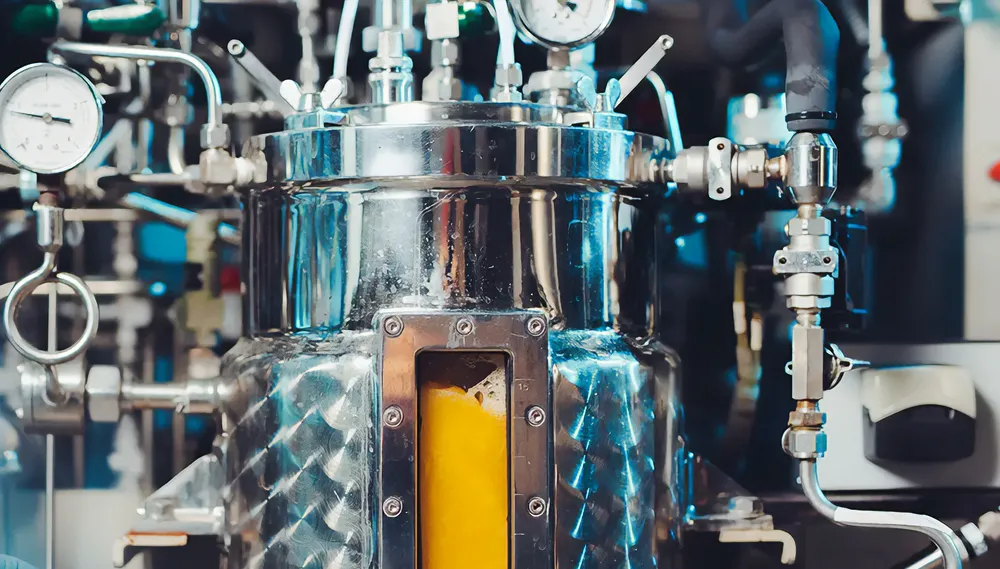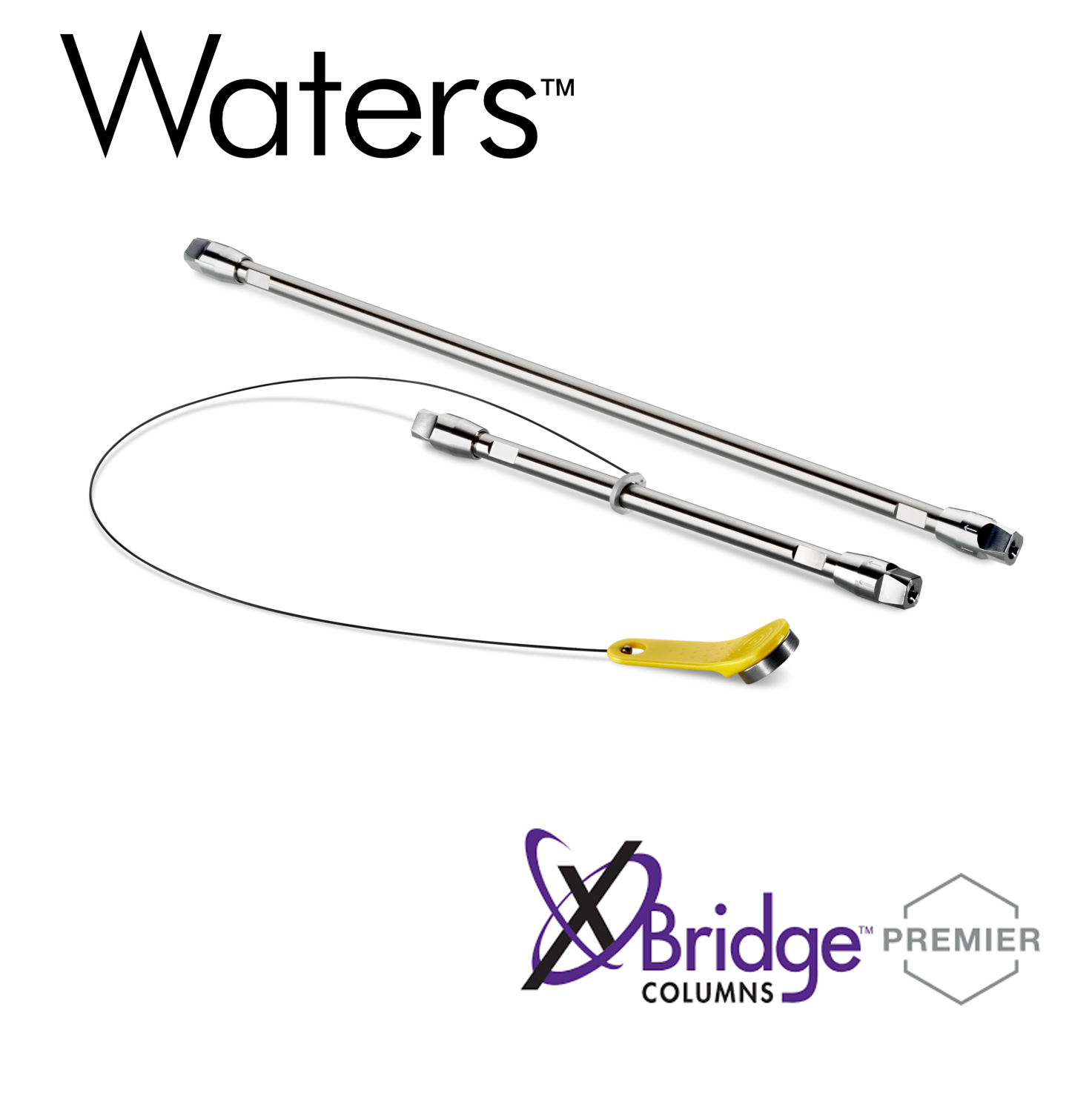Making the Right Investment: A Detailed Analysis of Bioreactors
.png)

Investing in new lab equipment is an important decision that requires careful consideration of factors like capability, capacity, flexibility, and cost. One key piece of equipment that often warrants significant investment is the bioreactor. As research, biomanufacturing, and process optimization needs evolve, having the right bioreactor systems in place is essential.
This blog provides an in-depth and unbiased analysis of key factors to weigh when investing in new or additional bioreactors for your lab or production facility. With details on leading bioreactor technologies, capabilities, and supplier options, it offers guidance to inform smart investment decisions for maximum return on investment.
A Technical Overview of Bioreactor Categories and Capabilities

Investing in bioreactors represents significant capital equipment decisions for research laboratories, process development groups, and biomanufacturing operations. There are two primary bioreactor vessel categories available in the market:
Single-Use Bioreactors
The first classification is single-use or disposable bioreactors. As the name denotes, these systems feature pre-sterilized plastic vessels or bags intended for one process run before disposal. By eliminating cleaning validation demands, single-use reactors offer faster turnaround times between batches. Without lengthy sterilisation protocols between runs, these systems enable greater flexibility to quickly pivot researching different cell lines or conditions. Their disposable nature also removes cross-contamination risks when cycling between developing innovative therapies targeting different disease states.
Leading single-use bioreactor platforms catering to essential needs include: benchtop mini bioreactors from Eppendorf BioBLU for early cell culture screening, Thermo Fisher's HyPerforma systems known for seamless scalability from R&D volumes up to 2,000L manufacturing scales, as well reliable options from GE Healthcare and Sartorius Stedim. These technologies are well-suited for seed inoculation, process development, clinical manufacturing requiring small to mid-size batch volumes, and some commercial production where facilities prefer single-product zones.
Stainless Steel Bioreactors
In contrast, stainless steel bioreactor tanks are designed for repeated reuse over years-long service lifecycles using validated cleaning procedures conducted between batches. Constructed of pharmaceutical-grade type 316L stainless steel, these culture vessels offer the highest durability and corrosion resistance vital for commercial manufacturing environments. Market-leading reusable platforms come from trusted equipment manufacturers including Thermo Fisher, Sartorius Stedim, and Merck Millipore who have proven expertise tailoring customizable control systems for fed-batch, chemostat, perfusion, or continuous culture bioprocess configurations.
These technologies excel at stable large-volume clinical through commercial manufacturing where processes experience little variation once scaled. Their reusable architecture also makes stainless reactors ideal for early research and development scales as changes can be easily made to impeller positioning, sparger stone porosity, or installing specialised ports and probes as process knowledge matures prior to final production frozen states.
Evaluating Key Bioreactor System Attributes

When researching various bioreactor equipment investments, core cultivation performance criteria to analyze span working volumes, agitation mechanisms, sparging capabilities, and environmental uniformity controls. Leading-edge platforms offer advanced functionality like integrated thermal jackets for temperature control paired with monitoring of critical pH and dissolved oxygen setpoints. This enables automated tuning through probes and metering pumps adding acids, bases, oxygen, or airflows to maintain ideal cell culture conditions.
Upstream bioreactors should provide reliably controllable incubation environments ensuring optimal growth kinetics suited to individual process needs and microbial or cell line traits. Additional connectivity and functionality considerations relate to data handling for trend analysis and early anomaly or contamination detection through integrated analytical biosensors. Of equal importance is assessing modularity and scalability when aiming to progress from process development research scales through to validated clinical good manufacturing practice (cGMP) licensed manufacturing capacities.
Partnering with bioprocess market incumbents having proven expertise tailoring bioreactor platforms provides assurance needed when determining critical equipment investments spanning development through production environments.
Factors Influencing the Economics of Bioreactor Investments
Purchasing bioreactors represents sizable capital expenditure that necessitates comprehensive financial analyses weighing quantitative cost factors as well as harder to quantify qualitative considerations that drive value.

Quantitative Cost Factors
- Equipment purchase price – Bioreactors have high upfront costs ranging from $10,000+ for benchtop versions to over $500,000 for 2,000L+ production models
- Maintenance expenses – Regular parts replacement, calibration, cleaning procedures
- Facilities/utility requirements – Space, HVAC, steam, compressed gases, specialised water purification systems
- Consumable costs – Probes, tubing, seals, filters, and bags which can quickly sum to thousands
- Labour – Trained operators required when running experiments and production
Qualitative Value Considerations
- Quality and reliability – Equipment precision and uptime ensure high quality batches and products
- Flexibility and customization – Adaptability to new cell lines and processes saves future costs
- Data tracking and connectivity – Advanced software, data capture, and analysis optimise processes
- Lead time and availability – Inventory gaps create delays impacting speed to market and revenue
- Training and support – Good supplier partnerships provide expertise guidance and troubleshooting assistance
Thoughtfully weighing all quantitative and qualitative factors provides a comprehensive view into overall bioreactor investment value.
Analysing Cost-Value Tradeoffs of Bioreactor Technologies

Having explored key capabilities and critical investment considerations for bioreactors, how do leading technologies compare specifically on cost factors weighed against performance value delivered?
Entry-Level Single-Use Bioreactors
Key attributes: Lower upfront price points, pre-sterilized disposable reactors minimise cleaning validation, simplest interface
Models: Eppendorf BioBLU® 3f, Sartorius Stedim SUBs
Cost-value analysis: Ideal for introducing single-use technology; limited functionality, data tracking, customization
When to invest: Early cell line and process screening; once processes stabilise consider upgrading to enhanced models
Advanced Single-Use Bioreactors
Key attributes: State-of-the-art functionality rivalling stainless steel systems; GxP compliance supports clinical trials
Models: Thermo ScientificTM HyPerformaTM G3Lite, Merck Millipore Mobius® 3L
Cost-value analysis: Higher upfront system costs offset by elimination of stainless steel cleaning/revalidation expenses
When to invest: Advanced process development through clinical/commercial manufacturing
Benchtop Stainless Steel Bioreactors
Key attributes: Reusable open architecture provides flexibility for R&D; compact footprint
Models: Sartorius Stedim Biostat® A+, GE Healthcare Incell Expert 420
Cost-value analysis: Moderate price balanced against high customization potential
When to invest: Early R&D before processes are standardized
Pilot and Production Stainless Steel Bioreactors
Key attributes: Scalable platform supports seamless process transfer up to 2,000L+; cGMP manufacturing compliance
Models: Thermo Scientific HyPerforma DynaDrive, Merck Millipore Mobius® Mobilizer
Cost-value analysis: Greatest capital investment offset by unparalleled quality, reliability, and flexibility
When to invest: Clinical through commercial scale manufacturing
Evaluating leading models available using these objective criteria will aid decisions between the various bioreactor technology investment options.
Partnering with an Experienced Supplier for Success

Beyond identifying and selecting the most fitting bioreactor models and functionality for current and future needs, partnering with the right bioprocess equipment supplier will prove critical for ensuring maximum return on equipment investments while navigating market complexities.
The ideal partner brings specialised expertise that biopharma research, process development, and manufacturing leaders can depend on including:
Consultative Guidance
Navigating the dizzying array of bioprocess technologies and options available can prove challenging even for the most seasoned industry veterans. The right supplier will provide consultative guidance based on deep understanding of equipment capabilities and experience implementing solutions across countless client scenarios. They will assess your specific workflows, infrastructure, compliance requirements, and goals to provide tailored direction on optimal bioreactor solutions. Whether introducing single-use models or scaling stainless steel systems, an expert partner steers you towards the best investments.
Custom Engineering Design and Integration
Even with standard bioreactor platforms available, every situation brings nuanced demands. The ideal partner has in-house custom engineering teams able to tailor systems to your distinct specifications. This includes customising aspects like bioreactor vessels, integrated automation, and peripheral equipment integration. Expert partners can also handle full project management from initial consultations through to equipment qualification and commissioning tailored to your facilities and processes.
Ongoing Training and Field Services
The value of a supplier relationship extends well beyond equipment delivery with support through the full product lifecycle proving essential. Quality partners have extensive on-staff technical teams providing thorough bioreactor operation and maintenance personnel training. They also offer ongoing field application services from installation and calibration through to part and software upgrades. For any troubleshooting or performance issues, they dispatch specialised field engineers for rapid diagnoses and repairs to maximise production uptime.
Reliable Validation Services
Biopharmaceutical applications call for stringent compliance and regulation. Experienced bioprocess suppliers have validation expertise in: IQ/OQ protocols, supporting documentation, and reports for seamless GxP compliance and regulatory submissions. Working with properly certified partners mitigates qualification/validation risks that could delay innovative therapies from reaching patients.
Flexible Procurement Options
Every organization has unique budget constraints and financial approaches from capital cash purchases to leasing/rentals to contracted equipment services. An ideal bioprocess equipment partner provides flexible procurement models to accommodate customer needs and constraints. They offer instruments via outright sales, short/long-term rentals, or reagent rental schemes where equipment access is tied to consistent purchase of associated reagents or consumables.
Mature bioprocess suppliers like Thermo Fisher Scientific, Sartorius, and Merck Millipore have perfected delivering well-rounded technical guidance, field services, and flexible value-added offerings complementing premium equipment sale. This enables customers to maximise investments with complete solutions for bioprocessing needs.
Conclusion and Next Steps

In an industry advancing as rapidly as bioprocess technology, getting the right systems in place is fundamental yet deciding on appropriate investments can prove complicated. This guide covers key considerations around bioreactor capabilities, costs, and suppliers to inform selections for maximum productivity and process results over the longest possible usable lifecycles.
While stainless steel and single-use models have distinct strengths and applications, partnering with an experienced bioprocess supplier is vital for weighing tradeoffs and configuring optimal solutions. Leading global companies have proven expertise from early research scales through validated large-volume pharmaceutical and biologic manufacturing implementations.
Still have questions? [IT Tech] offers free consultations to analyse your specific bioprocess goals and infrastructure environment. Our specialists can provide targeted investment recommendations personalised for your workflows, facilities, compliance needs, and budgets. We offer flexible procurement options if you determine purchasing new or additional bioreactors makes strategic sense. Reach out today to get answers to optimise your lab or scale-up operations.
Products You may Like
Check out other IT- Tech product that suit your taste
Subscribe to our newsletter
Stay updated with IT-Tech Insights
Related posts
Check out other IT- Tech Scientific Resources
.png)
Integrating Bioreactors & Fermentors for Lab Efficiency
Discover expert tips and best practices for seamlessly integrating bioreactors and fermentors into your laboratory workflow. From selecting the right equipment to optimizing growth conditions, elevate your scientific endeavors with our comprehensive guide.

Transforming Scientific Discovery with Bioreactors and Fermentors
Explore the transformative potential of bioreactors and fermentors in driving cutting-edge research across biotechnology, pharmaceuticals, and more. Discover the latest advancements shaping the future of scientific innovation.
.png)
Unlocking Full Potential: Advanced Uses for Fermentors
Unlock the full potential of fermentors with advanced sensors, precise environmental control, optimized hardware design, and intelligent automation strategies. Explore applications across industries, from biologics manufacturing to bioscience R&D, and discover how state-of-the-art fermentors can revolutionize your processes. Contact us to speak with bioprocessing experts and elevate your laboratory or production goals.










































































